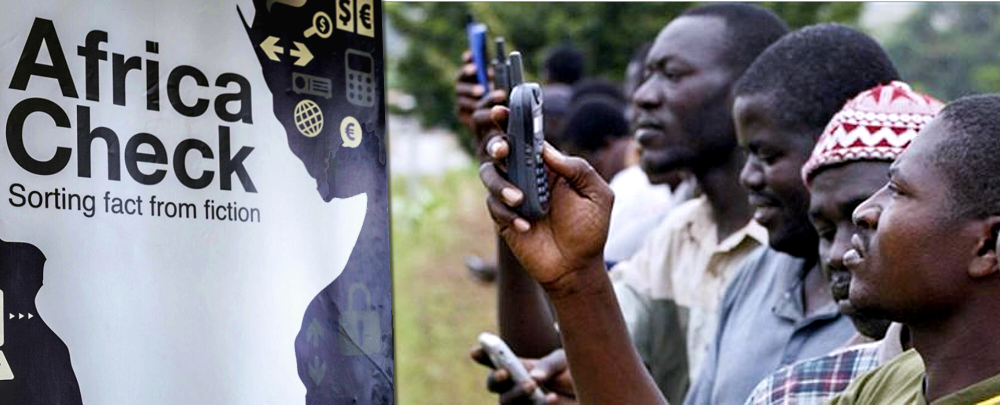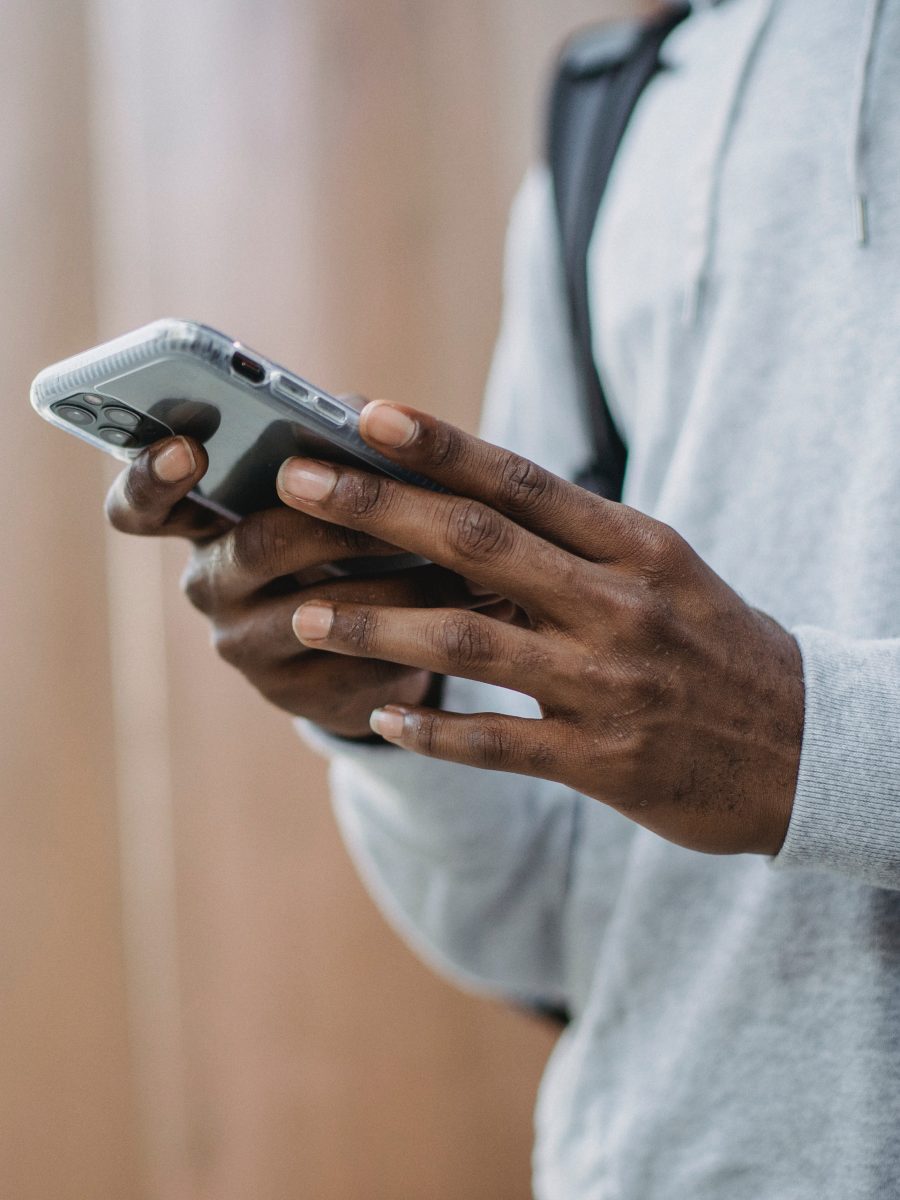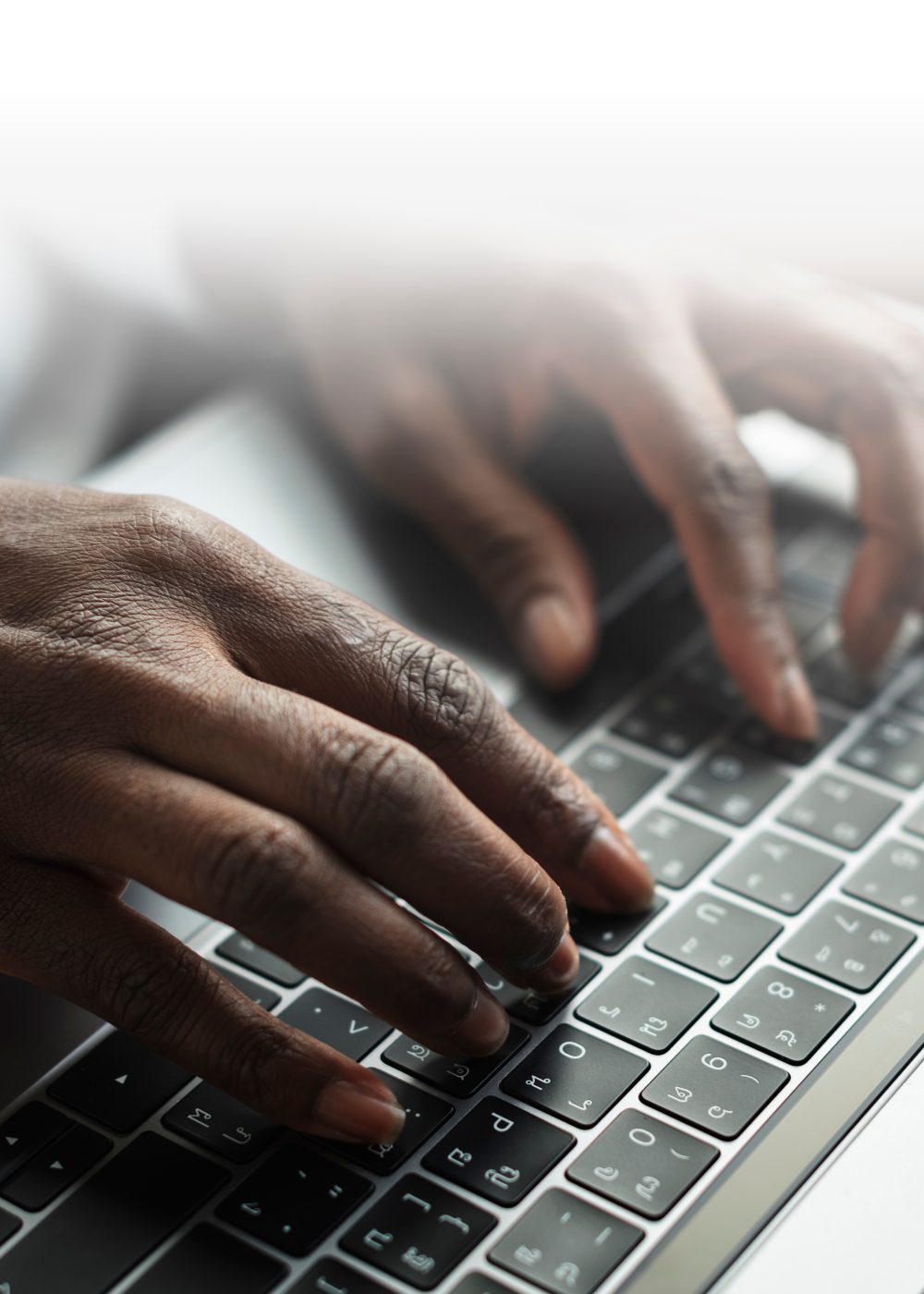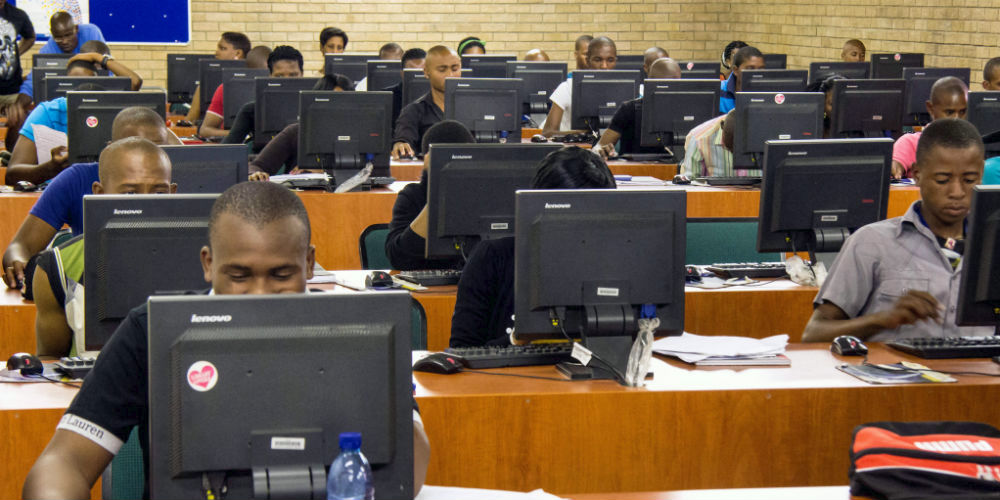The rise in disinformation in Africa poses a threat to security, public health, and democracy. Combatting this requires building the capacity of Africa’s fact-checking community and improving media literacy.

(Image: english-online.at)
African media consumers are exposed to “fake news” on a regular basis, with almost half saying they encounter completely fabricated stories daily. More than a third of users surveyed from Kenya, Nigeria, and South Africa said they also periodically shared false stories
An Afrobarometer survey of over 27,000 respondents in 18 countries found that overwhelming numbers believed that social media informed consumers about politics (88 percent) and helped them have political impact (73 percent). However, a majority said social media also makes people less tolerant (64 percent) and more likely to believe fake news (77 percent).
With all this disinformation comes an urgent need for fact-checkers. Established in 2012, Africa Check, the continent’s oldest fact-checking organization, was created to promote accuracy in public debates and the media. With a staff of 57 operating out of regional offices in Kenya, Nigeria, Senegal, South Africa, and the United Kingdom, Africa Check fact checks nearly 100,000 inquiries from media consumers every year, producing factsheets in English and French testing claims by public figures, institutions, and traditional and social media against the best available evidence.
For perspective on what African fact-checkers are doing to come to grips with the growing problem of disinformation, the Africa Center for Strategic Studies spoke to Lee Mwiti, the Chief Editor of Africa Check.
How widespread is disinformation in Africa today?
While disinformation is not new, the diversification of media platforms and the speed with which information travels nowadays has made it much more prevalent. Information is now exchanged in real time through newer, broader, and more sophisticated, yet affordable, mediums. All you need is a smartphone and internet connection to circulate manufactured stories.
67 percent of youth say that fake news circulating through social media hampers their ability to stay informed.
This is borne out by empirical data. The African Youth Survey, conducted across 14 countries by the South Africa-based Ichikowitz Family Foundation, found that the least trusted sources of news among Africa’s youth are Facebook (53 percent) and WhatsApp (50 percent) due to the sheer amount of false stories found on their platforms daily. Sixty-seven percent of youth say that fake news circulating through social media hampers their ability to stay informed. At the same time, social media is a major source of news (54 percent) for youth, suggesting that young people in Africa rely on social media for their information—even though they distrust it as a source.
An example of how disinformation can spread on social media is a rumor that 50 African children were paralyzed after receiving the meningitis vaccine. The story was started by an anti-vaccine network. Although it was first published in 2013, it began circulating again in 2020 amid a spike in conspiracy theories about the COVID vaccine. Our investigations found this story to be totally false. However, it had already been viewed over one million times.
Another example involved a crime syndicate specializing in identity theft, which was behind a case we investigated in September 2020 after receiving a request from the South African supermarket chain, Boxer. The group in question set up a fake Facebook page, “Boxer Hiring,” that claimed that the supermarket was looking for 3,600 general workers to be paid between 4,800 to 6,000 South African rand ($325-400) per month, as a means to gain access to applicants’ identity details. The page was pulled down thanks to our investigations.
Not all disinformation occurs on the internet or on social media. Fake news is also, at times, created and circulated by the traditional media (both state-owned and private) before doing the rounds on social media and other online mediums. Thus, traditional and social media are part of the same conveyor belt of news and information, both bad and good.
What are some of the more notable disinformation campaigns that you’ve seen, and how effective have they been?
Many of the really pernicious stories we deal with are in the areas of health and politics. In Nigeria, for instance, we’ve investigated numerous cases of fake medicinal cures by pseudo-scientists capitalizing on the public’s limited knowledge of medical science. In East Africa, we’ve debunked hundreds of claims that a special tonic consisting of herbal concoctions, typically involving a mix of honey, ginger, hot peppers, garlic, and herbal teas and popularly called “dawa” (medicine), can “burn” the COVID-19 virus in the body. The potency of this rumor is such that many dining establishments serve “dawa” on their menu thanks to its heavy promotion on social and traditional media and popular gossip. One how-to video teaching people how to make the tonic at home was shared over 4,200 times on Facebook in January 2021 at the start of the second wave of the pandemic in East Africa.

(Image: Pexels/WilliamFortunato)
In South Africa, the claim that 70 percent of the informal economy was controlled by foreigners (derisively called “amakwerekwere” or “those who speak a language we don’t understand”) was spread by a member of parliament to incite xenophobic attitudes against mainly African immigrants. We investigated this claim in March 2020, a few days after it was made. What we found was that, in fact, only 20 percent of informal businesses were owned by non-South Africans.
In another case in South Africa, we alerted the public to hate-inciting videos during a bout of xenophobic violence. One video on Twitter with 189,000 views purportedly showed a burning building in Johannesburg with foreigners jumping through windows to escape. A large menacing crowd was waiting below, ostensibly to kill them. On closer inspection, the signage on the building was not written in any of South Africa’s 11 official languages, and members of the public below were mostly Asian. It turns out that the video was in fact taken in Gujarat, India, after a fire broke out in an educational center. The crowds below were trying to help the victims.
The problem that fact-checkers face is that so much damage has been done by the time we are able to establish and disseminate the facts.
The least trusted sources of news among Africa’s youth are Facebook and WhatsApp due to the sheer amount of false stories found on their platforms daily.
One particularly tragic story that comes to mind has to do with pro-Biafra sympathizers in Nigeria. While the secessionist Biafra civil war ended more than 50 years ago, some activists and politicians have engaged in a relentless disinformation campaign on social media to create the impression that hostilities have resumed, and the formation of an independent state is imminent. This has revived ethnic passions among Biafrans, as it did in the late 1960s. Africa Check investigated this and found that while the social and political tensions underlying Biafran separatist sentiments continue to simmer, a crisis on the scale of the 1960s is in fact not imminent.
How did we dispel this rumor? First, our fact-checkers tracked down and contacted the people making the claims to ask them about their sources and proof. We then turned to experts in the field to add nuance and context in disproving each claim. The sources of unrest in Nigeria’s South East region (the heart of Biafran agitation) were properly mapped and explained. Afterward, our authors wrote briefs setting out this evidence step by step. These were then disseminated widely to media organizations, civil society, parliamentarians, politicians, diplomats, and other interest groups.
What does fact checking entail? How effective is it as a tool for dispelling disinformation?
Africa Check uses an eight-point methodology to flag, investigate, and report on suspicious stories:
- Select the claim to check
- Establish exactly what was said
- Seek out the evidence
- Check our archives and other sources
- Discuss the evidence with experts
- Write up the report, setting out evidence step by step and providing links
- Conduct an internal independent review
- Publish and monitor feedback
This entire process takes a few days to a week at the most. Our fact-checkers and writers maintain currency on a wide range of issues, and the sources we use for verification are always on standby so we can move quickly through these steps. We disseminate our findings widely and for free through our web-based platforms, as well as social and traditional media. This methodology is used by other fact-checking organizations in Africa. Some have also developed their own variations, guided by the International Fact-Checking Network.

(Image: freepik.com)
Those who profit from spreading rumors and inciting the public present their misleading information as fact. They usually occupy influential positions in society, giving them the power to shape opinion. Good fact checking entails focusing on claims which, if left unchecked, have the potential to cause serious harm.
The cardinal principle of this type of work is holding the persons spreading these claims responsible. We apply eight ratings to each claim ranging from correct to incorrect, allowing us to hold each source accountable for what they said because these ratings go on the record and are publicly accessible. You don’t want to have a “false” or “misleading” stamp next to your name and claim, as this comes with a reputational cost.
Africa Check, along with dozens of other fact-checkers, has a partnership with Facebook to investigate the “worst of the worst” misinformation on its platforms. Facebook says that these partnerships have reduced misinformation on its platforms by as much as 80 percent, though we are unable to independently verify this.
Platforms like WhatsApp and Telegram are awash with fake stories, but they are more challenging to fact check because their end-to-end encryption makes it difficult to determine their source. Sourcing is key to what we do.
What challenges do Africa’s fact-checkers face?
Our biggest problem is bringing our work to scale, given the sheer amount of disinformation out there. The abuse of information platforms across the continent and the world has become so widespread, and we worry that we are not tracking the worst of what is being disseminated. Attempts to misuse information are amplified by the online environment where everything happens in real time. The flood of information available on the internet means that consumers can move from one set of rumors and lies to the next, with little time for us to ascertain the truth.
To help build Africa’s fact-checking capability, Africa Check has supported other emerging fact-checking organizations, including nurturing a new 13-member network that provides greater regional reach across Africa. Lack of funding is a major issue that hampers our ability to expand. Put simply, if we had more funds, we would hire more fact-checkers and experts. This would help us process more stories and serve the public better.
Once an untruth takes root, it is difficult to convince people who believe it otherwise.
Another concern is the quality of some of the data we must work with. One arena where speculation, disinformation, and fake news is growing is national security. Yet these stories are difficult to examine because freedom of information laws usually go ignored or are only partially addressed. And once an untruth takes root, it is difficult to convince people who believe it otherwise.
Extending our services to communities that don’t have access to information is another challenge. Poor people with limited access to corroborate information are among the most vulnerable to disinformation and fake news, something we see time and again, especially during elections. They can be easily manipulated because they have no alternative means to access correct information or debunk untruths. Leaders abuse their authority to deliberately keep these vulnerable groups misinformed, fearful, deferential. The fact-checking fraternity is trying to address this through media literacy programs, community-level media outreach, and improved translation.
What are some emerging best practices?
Trust-building is key. It requires having respect for the audience, applying the highest ethical standards, and investigating stories in an unbiased manner. Networking is also critical, as no single fact-checking organization can do it all on its own. International cooperation is a new and exciting front for us. Africa’s fact-checking community won a grant from Google to investigate how artificial intelligence can be tapped to make fact checking easier, faster, and better. Such automation would revolutionize and popularize our work and bring it to scale, but we are still developing it.
We are also part of a pilot project to automate fact-checking on WhatsApp, which, as mentioned, is a tough nut to crack. As part of this effort, Africa Check launched a new and popular app called What’s Crap that crowdsources false information from South African WhatsApp networks and sends back the verified information as a voice note. Once refined, this app will be made available to other fact-checkers and WhatsApp communities in Africa.

An internet cafe in Lesotho. (Photo: OER Africa)
Having regional hubs is also emerging as a best practice, as these hubs can more closely track and corroborate stories. Our regional offices try to stay with each story from beginning to end, engaging our audiences throughout to keep them focused and alert. These hubs are also giving audiences the tools to understand disinformation and protect themselves. They are all public, free, and accessible on our website.
What should the public do when they come across a suspicious story?
As a rule, members of the public should always have a questioning attitude. Being skeptical is a good first line of defense as misleading information causes real harm to public safety, health, and even democracy. Members of the public should in addition arm themselves with what I would call the four core questions:
- Is this being widely reported elsewhere?
- Who stands to benefit from this information?
- What is the expertise of the person spreading it?
- What sources has he or she provided?
Consumers can follow a simple process. There is a section on our website called “submit a claim to fact check” where you submit basic information, including your name, email, and the claim you would like to check. You can also upload additional materials, such as a report, photograph, or sound clip.
Consumers can also investigate a wide variety of resources and easy-to-use tools that other fact-checkers have developed to help make the public more informed and better equipped to fact check their own stories. Again, all these tools are web-based and freely available to the public.
Africa Fact-Checking Websites
- Africa Check: http://www.africacheck.org
- Pesa Check: http://www.pesacheck.org
(fact checks stories about financial transactions) - Zim Fact: http://www.zimfact.org
(fact checks political stories and rumors in Zimbabwe) - Moz Check: http://www.mozcheck.org
(fact checks stories in Mozambique) - Dubawa: http://www.dubawa.org
(Nigeria’s first independent verification and fact-checking project) - Congo Check: http://www.congocheck.net
(fact checks political stories in the Democratic Republic of the Congo)
Additional Resources
- Africa Center for Strategic Studies, “A Light in Libya’s Fog of Disinformation,” Spotlight, October 9, 2020.
- Dora-Olivia Vicol and Amy Sippitt, “What Africa Check, Chequeado, and Full Fact Have Learned about Tackling Bad Information,” Poynter, February 21, 2020.
- Africa Center for Strategic Studies, “Russian Disinformation Campaigns Target Africa: An Interview with Dr. Shelby Grossman,” Spotlight, February 18, 2020.
- Yomi Kazeem, “WhatsApp Is the Medium of Choice for Older Nigerians Spreading Fake News,” Quartz Africa, October 22, 2019.
- British Broadcasting Corporation, “What We’ve Learnt about Fake News in Africa,” Special Report, November 12, 2018.
- Joseph Siegle, “Managing Volatility with the Expanded Access to Information in Fragile States,” Development in the Information Age, March 2013.

